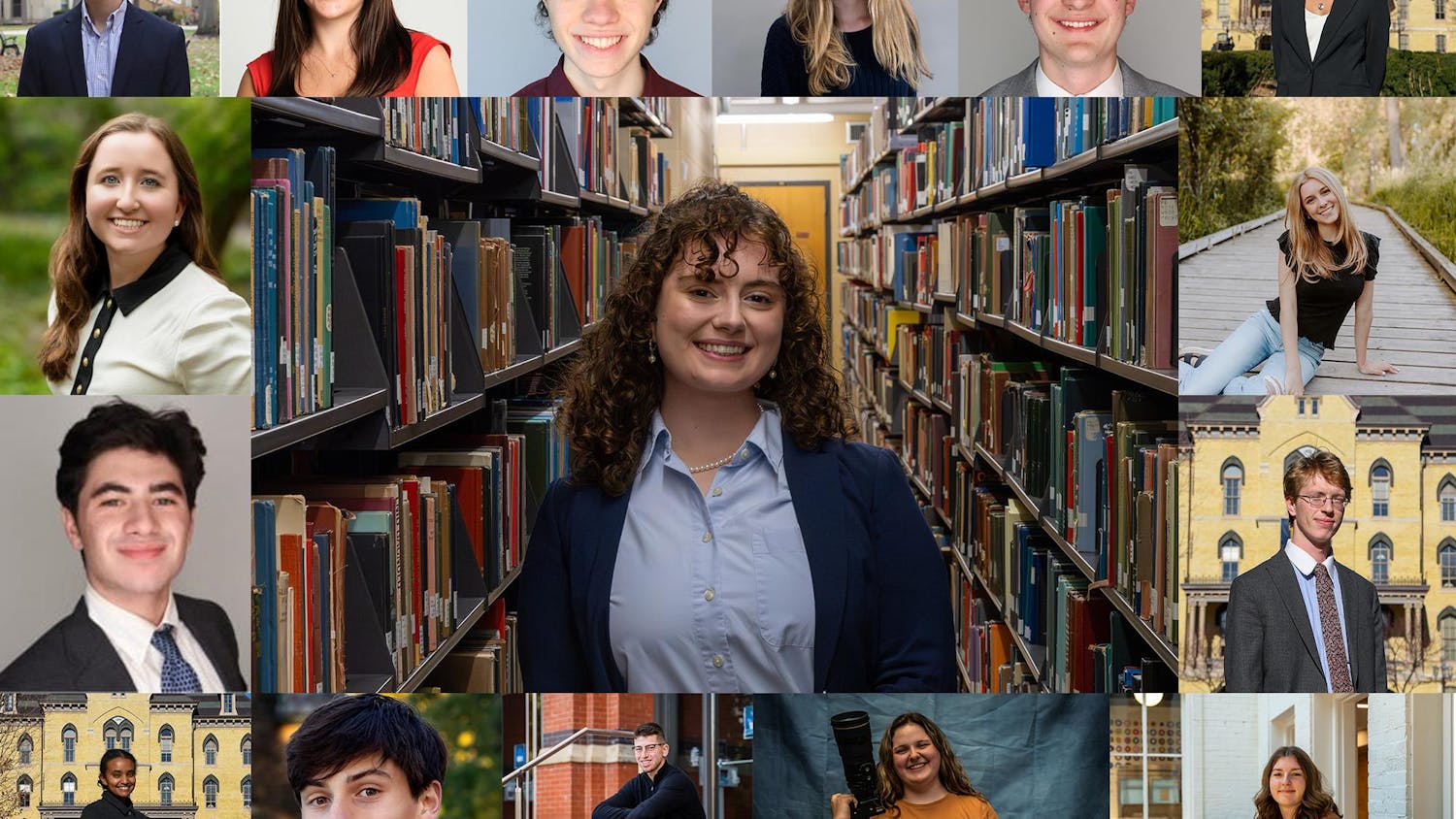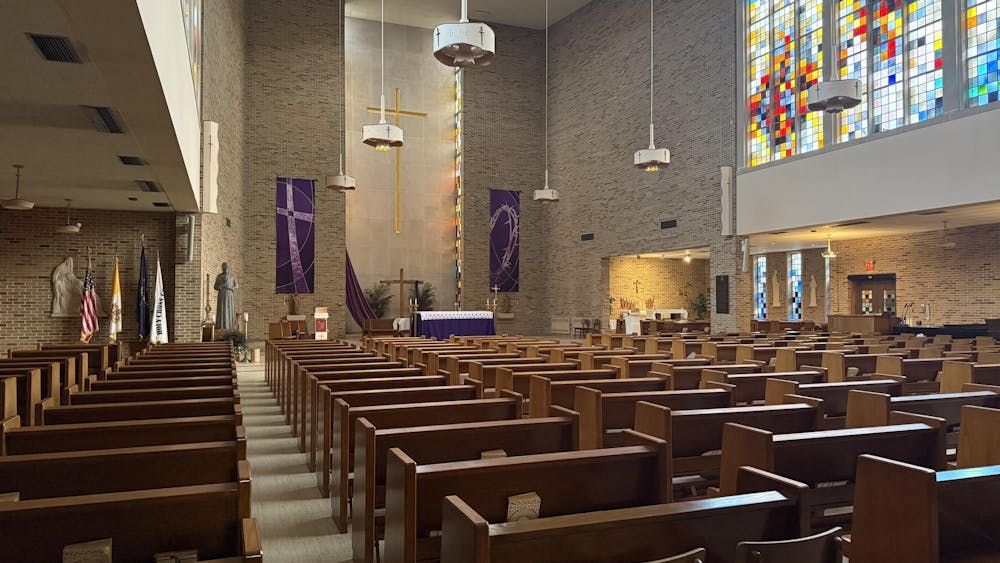Last Monday in the McCartan Courtroom, dean of Notre Dame Law School Marcus Cole spoke with Supreme Court Justice Brett Kavanaugh, who responded to questions from students and faculty members in the audience. In the Q&A, Kavanaugh discussed his relationship with his colleagues, how he personally developed his specific philosophy of law, including from both his time attending Catholic schools growing up and his experience working under former President George W. Bush.
Kavanaugh was the third conservative supreme court justice to visit Notre Dame in the past year, but the event was not announced to the public or opened up for media coverage.
Nods to Catholic Education
Kavanaugh’s opening remarks complimented fellow Supreme Court Justice Amy Coney Barrett as a “great representative” of her law school alma mater, Notre Dame. He said that after having gone to 10 p.m. mass in Pangborn Hall and watching the women’s basketball team play within his first 24 hours after arriving on Notre Dame’s campus, Notre Dame had already left a strong impression on him.
“It reflects Notre Dame’s academic excellence, the spiritual foundation, the Catholic tradition of service to others and the school spirit reflected in the sports program,” Kavanaugh said.
Answering a question about the role of Catholic education in shaping his legal perspective, Kavanaugh credited his Catholic schooling from first grade throughout high school as having taught him important values that are required to be a good judge.
Kavanaugh recalled three important lessons from his Catholic schooling: “be prepared”, “stand in someone else’s shoes” and “be not afraid.” These lessons from his classrooms from over 40 years ago still inform his job today, Kavanaugh said.
“Those lessons I learned in Catholic school, I think, still ground me today when I come in the office in the morning,” Kavanaugh said. “And I’ve tried, throughout all my life, I’ve devoted almost all my career to public service and to serving others.”
White House Experience
Though he said his Catholic education has been important for his legal career, Kavanaugh clarified that his philosophy of law is not impacted by his Catholic upbringing.
“A lot of what I learned in the Catholic school still informs not my jurisprudence, I don’t want to confuse the issue… but just how I try to treat other people and how I can think of my role in public service,” he said.
Explaining how he developed his idea of the Supreme Court’s role in American government, Kavanaugh credited his time working for President Bush as an associate counsel for giving him insight on why the court’s are important.
“For me, my White House experience for five and a half years is really quite central to my thinking about a lot of topics,” Kavanaugh said. “I learned a lot about the presidency… I also saw, separately, how the agency process works.”
Due to the president’s difficulty in passing reform through Congress, Kavanaugh said there is a lot of pressure on executive branch agencies to “push the envelope” of what they are constitutionally allowed to do.
“That’s where I think the courts come in, saying, ‘Wait a second, as a matter of separation of powers, that is beyond the existing authority you have,” Kavanaugh said. “What I saw in that process convinced me that it’s important that the courts police that because all the incentives in the executive branch are to push beyond the existing authority.”
Supreme court friendships, collaboration and justice lunch
Kavanaugh said he thinks there is much collegiality and talk between the nine justices in the Supreme Court. Though disagreements inevitably happen, he said the Supreme Court has been collaborative, coming together and talking through issues intensely, often not adhering to a strict conservative-liberal divide.
“The relationships are quite good and they result in cases that don’t get a lot of attention, but are really important and the lineups [of votes] are not necessarily what you might think,” he said.
Kavanaugh stressed, however, that despite any disagreements, the justices are good friends with one another.
“One of the things I think that’s important for the students to know here, because you read about the court, and one of the things you adjust to when you get on the court, is you just spend an enormous amount of time with these eight other people and only these eight other people at random.”
Sixty-five times a year, the Supreme Court justices meet for lunch, Kavanaugh said. He described it as a random group of people who form strong friendships, and he joked about former Justice Stephen Breyer’s broad knowledge “about things you don’t know anything about,” which he recalled being entertained by during the lunches while Justice Breyer was still in the Supreme Court.
“You can’t talk about work, so you talk about things that you would talk about with your friends,” Kavanaugh said. “We get tough cases and we disagree on some of those — I think that’s more nuanced than sometimes it’s portrayed… but we work well together. We get along well together.”
Contact Liam at lprice3@nd.edu.









